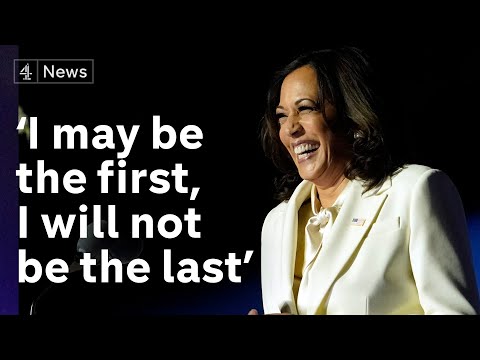In recent years, there has been a growing recognition of the importance of inclusive and diverse leadership in various sectors. This acknowledgment has sparked new conversations about the need for increased representation of Black leaders at the highest levels of organizations. From corporate boardrooms to government institutions, Black Leadership Matters is gaining momentum as a rallying cry for change.
Historically, systemic barriers have hindered Black individuals from ascending to executive positions and influential roles. These barriers include limited access to education, implicit biases in hiring decisions, and an overall lack of opportunities for career advancement. However, as awareness grows regarding these inequalities, organizations are being forced to address the longstanding disparities.
One glaring example is the underrepresentation of Black leaders on corporate boards. Numerous studies have shown that diverse boards lead to better decision-making processes, improved financial performance, and enhanced innovation. Despite these benefits, Black representation on Fortune 500 boards remains disproportionately low. According to a 2020 report by executive search firm Heidrick & Struggles, only 10% of new board seats were filled by Black directors in 2019.
To promote change and increased representation at the top levels of organizations, there is a need for intentional efforts to identify and groom talented Black individuals for leadership positions. Companies must confront systemic biases within their recruitment processes and establish mentorship programs that specifically target potential Black leaders. By providing support and guidance throughout their careers, organizations can help create a pipeline of diverse talent that rises through the ranks.
The conversation about Black Leadership Matters is not confined solely to corporations; it extends into politics as well. In recent years, there has been pressure on governments worldwide to diversify their leadership ranks and ensure that policies reflect the needs and aspirations of all citizens. The significance of this movement was evident with Kamala Harris becoming the first woman of African-American and Asian descent to hold the vice presidency in the United States.
Leadership representation matters not only for the individuals holding these positions but also for the broader communities they serve. When Black leaders are empowered and given a platform to shape policies, it opens doors for addressing systemic inequities in areas such as criminal justice reform, education, healthcare, and economic opportunities. Black leaders bring unique perspectives and experiences to the decision-making process, which fosters more inclusive solutions and policies that benefit all.
As these conversations evolve, it is important to recognize that progress will not happen overnight. Achieving true equality and representation will require a collective effort from organizations, society, and individuals alike. Allies must amplify Black voices and support initiatives that promote diversity in leadership.
Black Leadership Matters serves as a reminder that diversity is not just a buzzword; it is an essential ingredient for success in any field. Embracing the value of diverse leadership not only addresses historical inequalities but also fuels innovation, fosters empathy, and drives better outcomes for everyone involved.
To create lasting change, organizations must be proactive in their commitment to diversity and inclusion. They must continuously evaluate their practices, dismantle systemic biases at all levels of decision-making processes, and support the development of diverse talent pools. By doing so, organizations can ensure that Black Leadership Matters becomes more than just a slogan; it becomes the norm.
In conclusion, the ongoing conversations around Black Leadership Matters highlight the urgent need to dismantle barriers that have hindered Black individuals from achieving top-level positions across sectors. Organizations must actively work towards creating pathways for talented Black professionals to reach leadership roles. Recognizing the importance of diversity at all levels is crucial not only for equality but also for driving innovation and positive change within our society as a whole.





